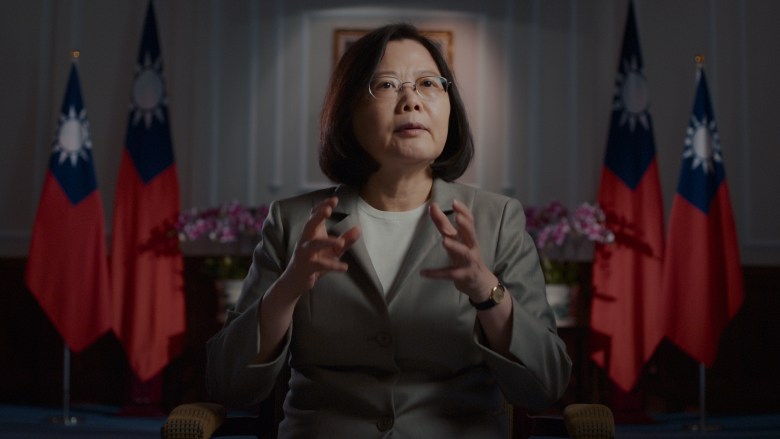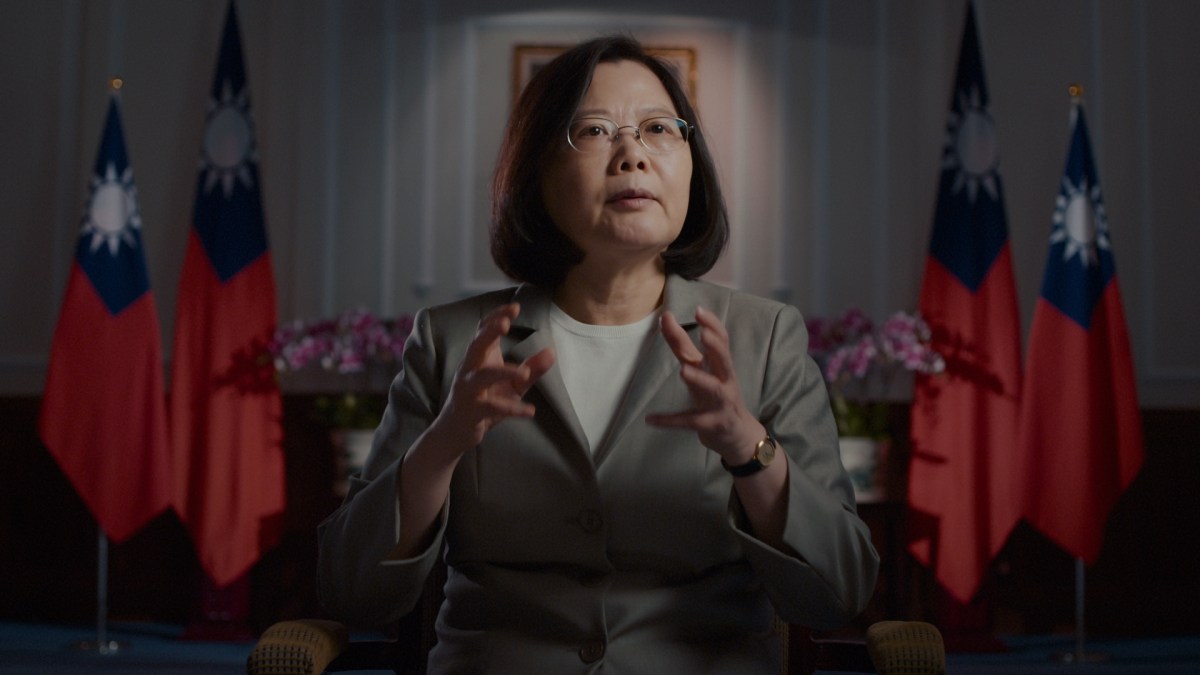
A little more than a week ago, Taiwan made a statement to the world that it would maintain its democracy by electing President Lai Ching-te and Vice President Hsiao Bi-Khim of the Democratic Progressive Party.
That move showed the timeliness of filmmaker Vanessa Hope’s documentary, “Invisible Nation,” which has been selected as the closing film of the 30th Slamdance Film Festival.
“Invisible Nation,” produced by Hope’s husband Ted, examines the election and its following two terms of the country’s first female president, Tsai Ing-wen, who will be officially succeeded in May by Lai.
In addition to being Taiwan’s first woman to take office, Tsai is also a member of the Democratic Progressive Party, Hope said.
“One of the things that got me excited in the beginning was this idea of a first female president, especially in this particular time, because female presidents are rare,” she said. “(And) ones like Tsai Ing-wen who are not brought to power by authoritarian, conservative men or corporate power, or are beholden to them and their interests, are even more rare and important for the survival of the democracy.”
The idea for the documentary bubbled to the surface with a Utah-connection more than seven years ago, when Hope heard that Tsai may have a chance to be elected into office.
“I had made this film (“All Eyes and Ears”) about the relationship between the United States and China (that) followed President Barack Obama’s U.S. Ambassador to China, Jon Huntsman, who was the governor of Utah,” she said. “I was excited to have that access and learn about the relationship between the U.S. and China.”
Taiwan had been a part of that film, but Hope felt the country needed its own film told through its own voices.
“I needed to understand what was going on on the ground,” she said. “So I tracked developments and found they might elect their first female president. And I was there in 2016 when they did.”
That’s when Hope began pulling together a team so she could make “Invisible Nation,” but the first thing she had to do was secure a grant. And that’s where another Utah connection stepped in.
Filmmaker Geralyn Dreyfous, Utah Film Center founder and board chair, whom Hope had worked with before, pointed her toward possible funding.
Dreyfous knew about Hope’s interest in a book, ‘Sex and World Peace,’ by Valerie Hudson, which examines the how “the security of women is a vital factor in the occurrence of conflict and war, unsettling a wide range of assumptions in political and security discourse,” according to its publisher, Columbia University Press.
“She also knew a foundation called Compton in San Francisco that was also interested in the book, and with this focus on women peace and security, we thought maybe we could get them to think this could be interesting and give us a grant,” Hope said.
It did, and the funds were granted in November 2016.

“We then wrote up a detailed proposal and submitted it to President Tsai’s office and waited,” Hope said. “The wait is typically six months, which is exactly what they took to get back to us.”
Hope and her crew met with Tsai and her staff in April 2017.
“There was a good discussion, and as President Tsai was leaving the room, right at the door, she looked at us and nodded her agreement,” she said. “She closed the door, and we erupted in excitement.”
The crew had five weeks of access to Tsai, starting the following May.
“It was a learning process, because I had consent, but I didn’t have power over the president of the country,” Hope said with a laugh. “Plus, neither my team or her team knew what we were getting into and what would happen in the world that would impact us.”
So, Hope made sure she and her crew continued to build trust.
“That does take time and a show of commitment,” she said. “We were there consistently every year, except in 2021, because of COVID. But I really planted myself there from July 2022 to February 2023, because that’s when the film really got made and the editing team was in Taiwan.”
Still, making the documentary over seven years opens up many variables, according to Hope.
“I was really thinking that the election of a woman, especially one from the Democratic Progressive Party, would be the focus. And while, it certainly is a theme and a thread in the film, it’s not the whole story, and it couldn’t be. Because the truth of the reality unfolding in world events impacted us at every term.”
Those events included the Chinese Communist Party taking more control of Hong Kong’s national security, the eruption and spread of COVID and Russia’s invasion of Ukraine.
“Those things shaped what we could shoot and what we were doing in the edit to shape this story,” Hope said.
Another thing Hope had to keep in mind was making sure “Invisible Nation” would not be seen as propaganda.
“Presidents in Taiwan, as in the United States, serve for two terms, and in truth we knew President Tsai would run again in 2020, therefore an expected end date to the film shouldn’t be before 2020,” she said. “Otherwise it would look like I was making a propaganda film, and that was ridiculous. I wasn’t trying to make anyone look good, and no one was paying me to make anyone look good.”
Hope’s interest in Taiwan overall reaches back to the mid 1990s.
“When I graduated from college, I was fortunate to live in Taiwan from 1995 to 1996,” she said. “It was a hugely transformative year in the ministry of Taiwan, because they transitioned officially from authoritarianism to having their first, direct, presidential elections.”
Throughout the process, China fired missiles at the island, hoping to intimidate its population out of voting, Hope said.
“That was the beginning of my ‘Woah’ moment,” she said. “So I went to work in a foreign policy think tank called the Council on Foreign Relations.”
The organization specializes in U.S. foreign policy and international relations, Hope said.
“One of the important attributes of focusing on foreign policy is being flexible in changing times in reality,” she said. “So, today, the situation is different from ’95 and ’96. China has increased their military capabilities and intentions toward Taiwan, which sound very aggressive when spoken by (President) Xi Jinping.”
Still Taiwan continues to strengthen its democracy, especially after the elections last week, Hope said.
“They showed how to make progress and move forward,” she said. “They are ahead and more high-functioning than the United States when it comes to democracy. I feel they are showing the world that regardless of gender, race, ethnicity or what the bullies do.”
Hope is honored that “Invisible Nation” was selected as Slamdance’s closing-night film.
“I have to say, I love that Slamdance is a film festival by filmmakers for filmmakers and they’re not bowing down to corporate mainstream pressures,” she said. “It is known for discovering and championing some incredible voices, most notably Gina Prince-Bythewood and Christopher Nolan. So, I feel like I’m joining a family of filmmakers I deeply respect.”
While Hope relishes in that honor, she is also thinking of another documentary. This one will be about Hsiao Bi-Khim, the vice-president-elect of Taiwan.
“She’s a major character in ‘Invisible Nation,’ Hope said. “I’ve followed her from her time as a legislator to being the de facto ambassador to the United States. And I would love to make a film about her. I don’t know where, when and how, but the idea has been floated to me.”

